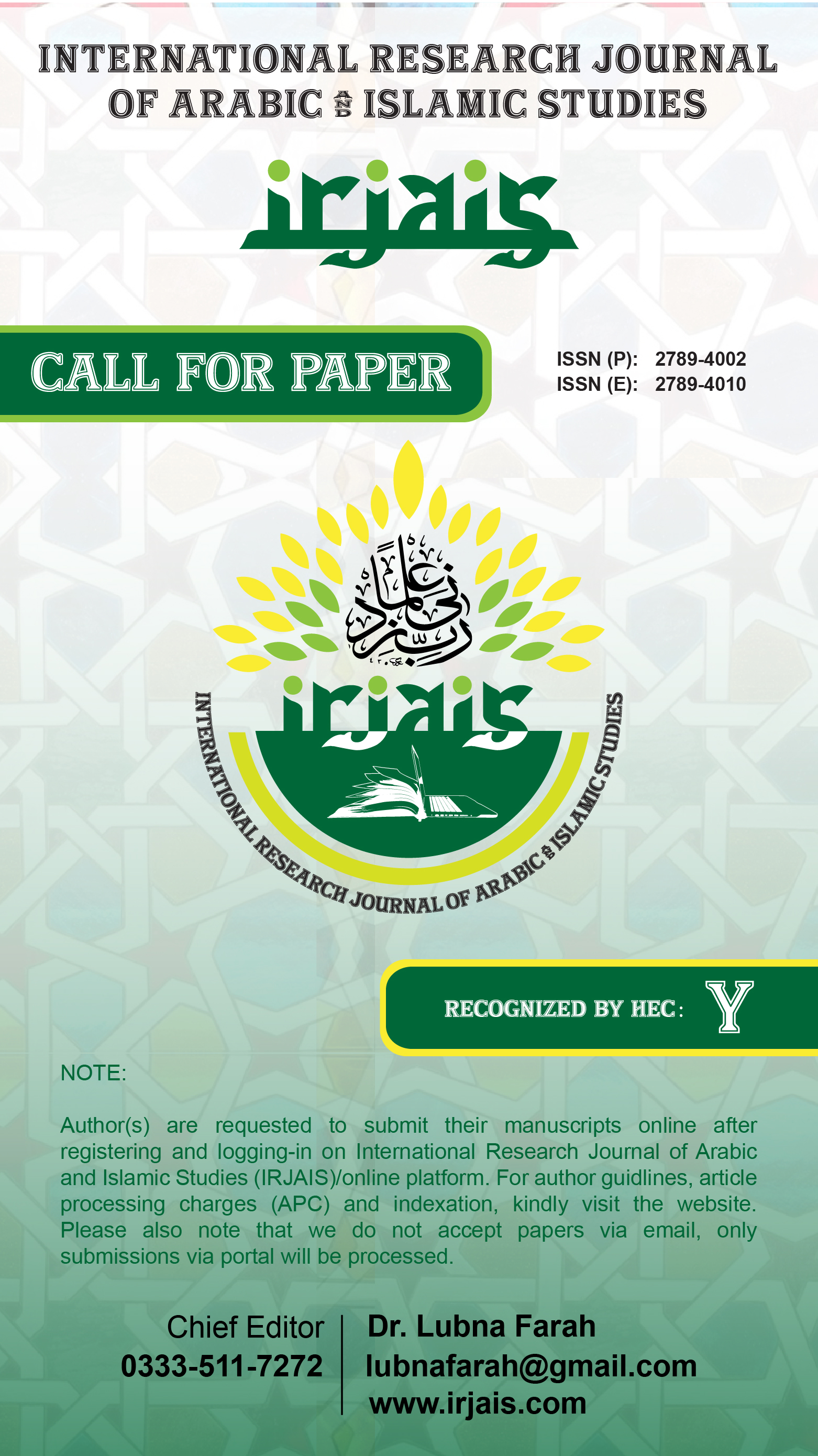اسلام میں مذہبی اسفار(ٹورازم) کاتصور اور ان کی اہمیت و افادیت: ایک تحقیقی مطالعہ
The Concept and Importance of Religious Tourism in Islam: A Research Study
Keywords:
Religious Tourism, Hajj, Quranic Teachings, Spiritual Growth, Divine Closeness, Economic BenefitsAbstract
Islam endorses movement and continuity, attributing religious significance to travel. Since ancient times, humans have traveled, but Islam has imbued it with spiritual meaning. The Quran repeatedly encourages travel(سِيْرُوْا فِي الْاَرْضِ) for various purposes, including religious, spiritual, social, cultural, and economic. Special provisions for travelers emphasize its importance. Visiting sacred sites, particularly among Muslims, provides spiritual solace. The greatest religious journey in Islam is the Hajj, encompassing all acts of worship, directed towards Masjid al-Haram. The three mosques—Masjid al-Haram, Masjid al-Nabawi, and Masjid al-Aqsa—hold the highest significance, and traveling to these for worship is considered meritorious. Religious journeys in Islam are seen as means to acquire knowledge, divine closeness, spiritual growth, and purification from sins. Economic benefits are also acknowledged, emphasizing that travel serves multiple purposes in Islam. The primary goal remains worship, with economic and worldly benefits being secondary. Thus, travel in Islam is significant for its religious, economic, educational, cultural, and civilizational benefits.





